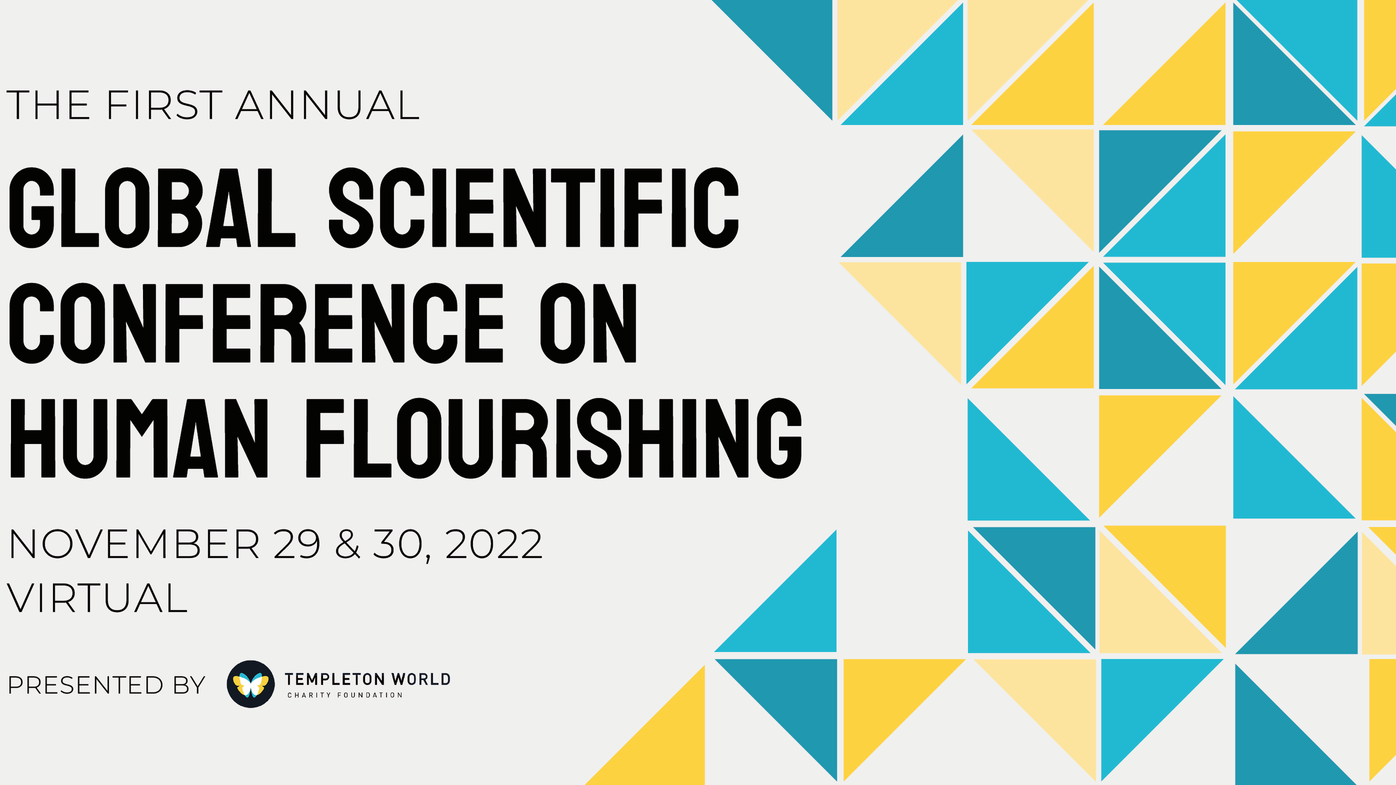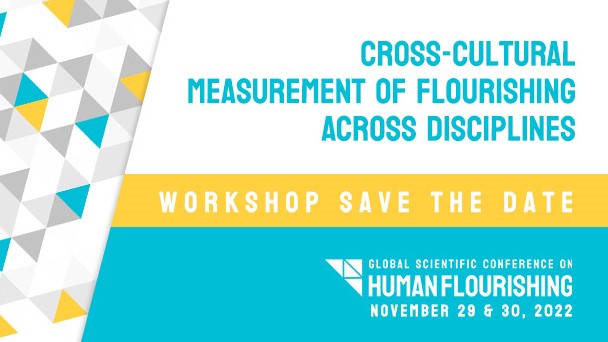Baylor Among Partner Organizations for Inaugural Global Scientific Conference on Human Flourishing
Global Flourishing Study and Baylor Institute for Studies of Religion scholars Byron Johnson, Ph.D., and Matthew Lee, Ph.D., lead workshop on “Cross-cultural Measurement of Flourishing Across Disciplines” at conference exploring the scientific frontiers of human flourishing
Media Contact: Lori Fogleman, Baylor University Media and Public Relations, 254-709-5959
Follow us on Twitter: @BaylorUMedia
WACO, Texas (Nov. 28, 2022) – What can science teach us about how to help more people flourish amid the compounding crises of the 21st century? Which breakthrough innovations will support us to grow, be resilient and adapt in the face of adversity? How does flourishing differ by culture, and what can we learn from each other to flourish together?
These questions will take center stage at the inaugural Global Scientific Conference on Human Flourishing, an interdisciplinary conference organized by Templeton World Charity Foundation in partnership with leading academic and policy research centers around the world, including University of Cambridge, University of Haifa, Universidad de Los Andes, Baylor University, Arizona State University, Rangjung Yeshe Institute Foundation, Legatum Institute Foundation and Future Africa Forum, Worldview Studios and the Inner Development Goals.
The free virtual conference, which will be held Nov. 29-30, 2022, showcases the latest and most meaningful scientific advances in understanding how humans flourish across cultures, in addition to innovative new tools and strategies that can foster greater flourishing.
Byron R. Johnson, Ph.D., and Matthew T. Lee, Ph.D., with Baylor’s renowned Institute for Studies of Religion (ISR) and serving on the unprecedented Global Flourishing Study research team, are leading one of nine invitation-only workshops hosted around the world by partner organizations. These workshops explore key topics of importance to human flourishing, including the development of practical strategies to drive outcomes.
In October 2021, Baylor, Harvard University, Gallup and other partners launched the Global Flourishing Study, a $43.4 million, global, longitudinal study of approximately 240,000 people, representing 22 countries globally, with annual data collection across a broad range of well-being outcomes. This effort includes the data collection and management expertise of Gallup and the stakeholder coordination and open science leadership of the Center for Open Science. The GFS is the largest initiative of its kind – and the largest funded research project in Baylor history – and will yield data that will make possible scientific research to determine the causes and factors that lead to human flourishing.
“When you think about our Christian mission, it’s a perfect fit — to investigate what it truly means to flourish and live well,” Johnson said. “The implications are staggering because we’ve never before taken this kind of approach.”
At the conference, Johnson and Lee’s workshop will focus specifically on “Cross-cultural Measurement of Flourishing Across Disciplines,” connecting select academics, philanthropists, foundations, social innovators and transformational leaders across sectors who do not ordinarily engage each other.
The study of flourishing has traditionally been a scholarly niche, focused overwhelmingly on Western, highly educated and relatively wealthy groups. The conference aims to advance a robust and global field of flourishing by elevating research from lower-income settings and non-Western cultures and connecting scholars making scientific discoveries with policymakers and practitioners who can put that knowledge to use.
“Good people have good intentions, but they often lack a clear roadmap for the future. In some respects, that is what we are hoping the workshop can begin to provide – an evidence-based path forward,” said Johnson, ISR director and Distinguished Professor of the Social Sciences at Baylor. “The synergy from coming together could prove to be profound.”
Lee is professor of the social sciences and humanities at ISR, as well as research associate and director of the Human Flourishing Program’s Flourishing Network at the Institute for Quantitative Social Science at Harvard. In addition, he is of 10 members of the conference’s global program advisory committee, having served as lead editor on an interdisciplinary volume on the measurement of well-being.
“My roles at Baylor and Harvard, including leading a cross-sector, international Flourishing Network that has supported several communities of practice, provide me a unique vantage point on the work of these two leading academic institutions, including their collaboration on the unprecedented Global Flourishing Study,” Lee said. “I hope that the conference helps scholars find each other throughout the world and across disciplines. There is so much research being conducted right now, but there is no single disciplinary home for it and many scholars might be unaware of the cutting-edge work outside of their discipline or their home country. This is why a global conference devoted to scientific breakthroughs is needed: it provides the missing connective tissue to unite the emerging interdisciplinary field.”
To attend the virtual conference, visit www.humanflourishing.org.
ABOUT TEMPLETON WORLD CHARITY FOUNDATION
Templeton World Charity Foundation has committed $100 million to support bold research, practices and policies to discover new knowledge, develop efficient tools and launch innovations that make a lasting impact on human flourishing around the world. For more than 20 years, the foundation, based in Nassau, Bahamas, has invested in diverse, rigorous, and openly accessible scientific research embodying the dynamic and forward-looking vision of its founder, Sir John Templeton. For more information on TWCF, go to www.templetonworldcharity.org.
ABOUT BAYLOR UNIVERSITY
Baylor University is a private Christian University and a nationally ranked Research 1 institution. The University provides a vibrant campus community for more than 20,000 students by blending interdisciplinary research with an international reputation for educational excellence and a faculty commitment to teaching and scholarship. Chartered in 1845 by the Republic of Texas through the efforts of Baptist pioneers, Baylor is the oldest continually operating University in Texas. Located in Waco, Baylor welcomes students from all 50 states and more than 90 countries to study a broad range of degrees among its 12 nationally recognized academic divisions.
ABOUT THE BAYLOR INSTITUTE FOR STUDIES OF RELIGION
Launched in August 2004, the Baylor Institute for Studies of Religion (ISR) initiates, supports and conducts research on religion, involving scholars and projects spanning the intellectual spectrum: history, psychology, sociology, economics, anthropology, political science, epidemiology, theology and religious studies. The institute’s mandate extends to all religions, everywhere, and throughout history, and embraces the study of religious effects on prosocial behavior, family life, population health, economic development and social conflict. For more information, visit baylorisr.org.

